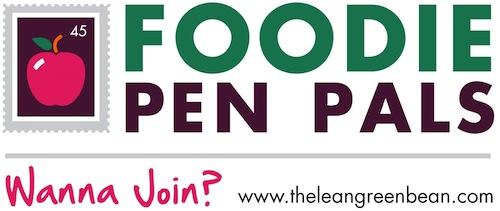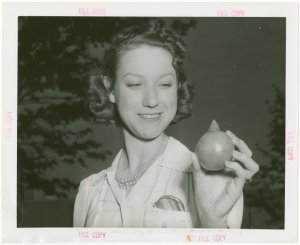"Whaddaya mean 'illiterate'? My father and mother were married right here in the city hall!"- Dorothy McNulty (aka Penny Singleton) in After the Thin Man.
Ah, I love that movie.
There's a strong movement in many professions about literacy or one's knowledge about a certain subject. Certainly in my own profession of librarianship (or more often academic librarianship), there's a constant push for information literacy. Some professional library organizations like the Association of College and Research Libraries (or ACRL) spend an awful lot
manpower on it. And virtually
every academic library has to partake in this exercise.
To weigh over on the Librarian side of the Streamlined Ska persona, I have some serious issues with how information literacy is thrown en masse as THE answer to successful students navigating the ever changing resources in front of them. I'm more of a fan of developing critical thinking skills among library users and less of a specified learning objective. If I base technical proficiency for librarians based on when I was in Library School, well then, it probably hasn't changed much. I don't think being technically savvy is the answer to successful research. It's part of it, but just enabling one key phrase is not going to get youngsters to understand how to formulate a question in order to find an answer that might be more than just parroting their favorite website.
That's my very small nutshell. I would suggest reading
Lane Wilkinson's take on ACRL's attempt to recast info lit in terms of threshold concepts to see a larger timeline and set of resources as to part of this argument.
"But what has this to do with food and weight maintenance," you ask? Well, we're now in the age of trying to teach food literacy. (I mean "we" in the sense of us all, although
librarians did stick their nose in it, too.)
And it's very similar to info lit: If we teach the basic tenant of this subject to someone, they will better prepared to make an informed decision about their food intake. And a
recent literature review of food literacy programs geared at adolescents shows ... that few of these initiatives show a positive impact on dietary choices. Even though the need is still there.
Whomp-whomp.
And yet if you look at the 19 studies reviewed in this paper, they all had different learning outcomes. While they were all about getting a better understanding of healthy eating, there was not overriding method or exercise.
So we have librarians trying to agree on a set way of determining outcomes and we then have ... well, I was going to say "Dietitians and Nutritionists have many ways to determine outcomes," but that's not entirely true.
It seems a lot of people feel they can teach you to eat better and be more healthy, even without a professional accreditation. Information literacy still tends to stay in the Academic wheelhouse, and usually with the librarians. For food it's not always the professionals. Sort of in the same way as "Why do I need a library? It's all online."
Anyone can write a cookbook.
Man, people are stupid.
Still, getting back to actual research in food literacy, I'm thinking the reason it's so difficult to tackle this in a uniform matter is that most people have very different concepts not only of food, but of themselves. It's one thing to say, "I prefer searching Lexis-Nexis to Westlaw." It's another to say, "I only eat vegetables that look and feel and taste this way," such as in
this study from the Netherlands. (Although as a long time former employee of a Dutch company, I rarely found any Dutch who liked their veggies raw or crunchy!)
Het spijt me, maar het is waar!
And let's look at
this study about perceived body fat. While gender made a huge difference in results, it seems very few folks were correct in estimating their own body fat percentage nor were they satisfied with their current body fat.
So here we are studying ways to get folks to make better choices when they already cannot perceive themselves correctly nor do they prefer the taste and texture of healthier foods. How do you change that? How do you teach someone to make lifelong decisions that may often go against their internal make up? Is it the same as teaching a freshman how to better prepare a research question?
At this point, I suppose I could make a grand conclusion summarizing how once again the librarian and dietitian groups need to come together to create some universal moment of literacy. But I'm not, because I don't really think that'll work this time. Not that we shouldn't play together, but not like this.
Instead I really think we need to move into the idea of
critical thinking. It's not if you're an expert on a subject. It's that you know enough to try to question WHY something might work for you, information or food-wise. And it opens up your mind to finding out more in order to make an informed decision that works for you.
I always say that's what makes a good librarian anyway. Perhaps that's also why the Streamlined Ska life has been manageable, as well!
ETA: I will say that most of my career OUTSIDE of academia, we never worried about this stuff. It was always just critical thinking.
References:
Bongoni, R., R. Verkerk, M. Dekker, and L. P. A. Steenbekkers. “Consumer Behaviour towards Vegetables: A Study on Domestic Processing of Broccoli and Carrots by Dutch Households.” Journal of Human Nutrition and Dietetics, June 1, 2014, n/a–n/a. doi:10.1111/jhn.12245.
Brooks, Natalie, and Andrea Begley. “Adolescent Food Literacy Programmes: A Review of the Literature.” Nutrition & Dietetics, December 1, 2013, n/a–n/a. doi:10.1111/1747-0080.12096.
Campisi, J., K. E. Finn, Y. Bravo, J. Arnold, M. Benjamin, M. Sukiennik, S. Shakya, and D. Fontaine. “Sex and Age-Related Differences in Perceived, Desired and Measured Percentage Body Fat among Adults.” Journal of Human Nutrition and Dietetics, June 2014, n/a–n/a. doi:10.1111/jhn.12252.
“Information Literacy Resources.” Accessed July 8, 2014. http://www.ala.org/acrl/issues/infolit.
“The Problem with Threshold Concepts.” Sense & Reference. Accessed July 8, 2014. http://senseandreference.wordpress.com/2014/06/19/the-problem-with-threshold-concepts/.
Yang, Sharon Q., and Min Chou. “Promoting and Teaching Information Literacy on the Internet: Surveying the Web Sites of 264 Academic Libraries in North America.” Journal of Web Librarianship 8, no. 1 (2014): 88–104. doi:10.1080/19322909.2014.855586.





